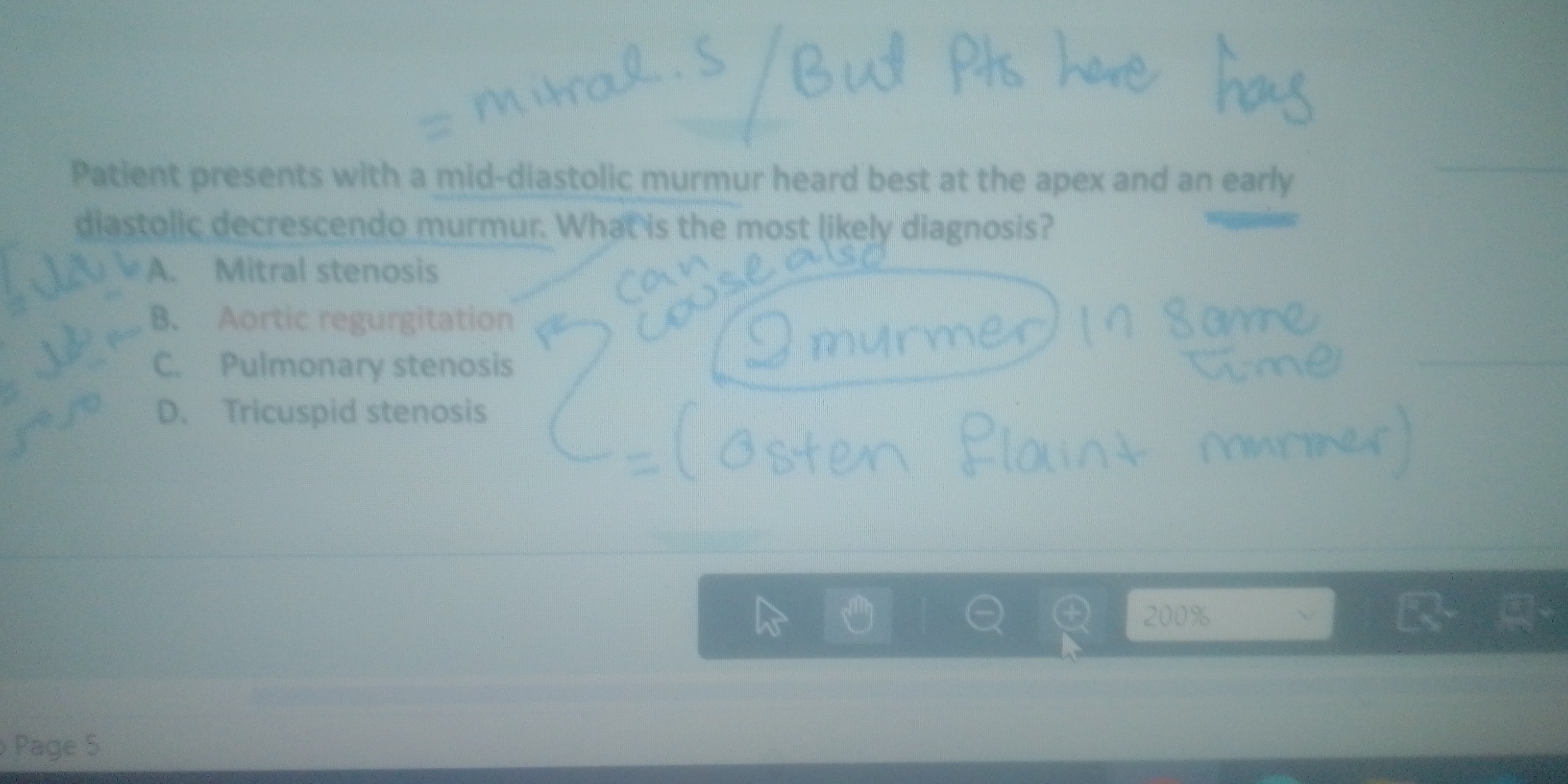Patient presents with a mid-diastolic murmur heard best at the apex and an early diastolic decrescendo murmur. What is the most likely diagnosis?

Understand the Problem
The question describes a clinical scenario involving a patient with specific heart murmur characteristics, asking for the most likely diagnosis. It requires knowledge of cardiac conditions and the associated sounds.
Answer
Aortic regurgitation.
The most likely diagnosis is aortic regurgitation, which can cause both the early diastolic decrescendo murmur and an Austin Flint murmur.
Answer for screen readers
The most likely diagnosis is aortic regurgitation, which can cause both the early diastolic decrescendo murmur and an Austin Flint murmur.
More Information
Aortic regurgitation is characterized by an early diastolic decrescendo murmur and can also present with the Austin Flint murmur, a mid-diastolic sound at the apex due to turbulent blood flow.
Tips
A common mistake is to attribute the mid-diastolic murmur solely to mitral stenosis without considering the presence of an Austin Flint murmur associated with aortic regurgitation.
Sources
- Aortic Regurgitation Exam | Stanford Medicine 25 - stanfordmedicine25.stanford.edu
- The Austin Flint Murmur | SpringerLink - link.springer.com
AI-generated content may contain errors. Please verify critical information